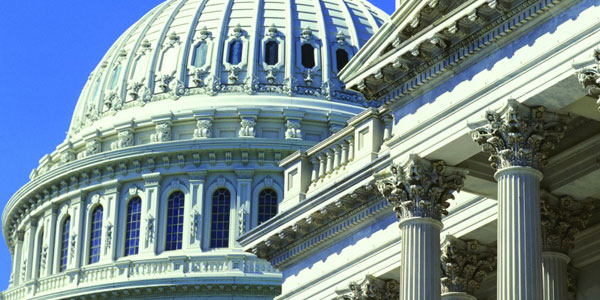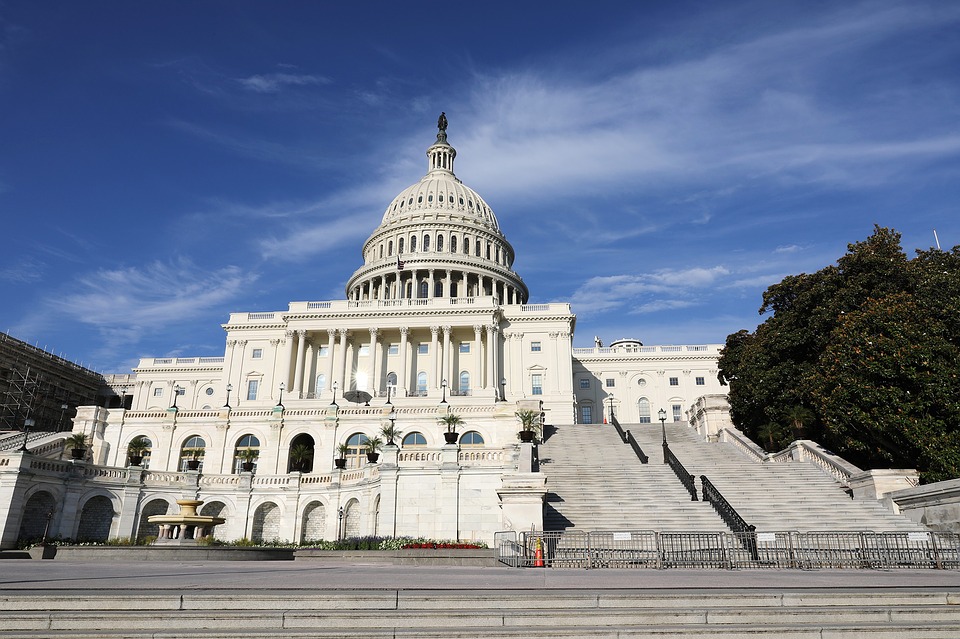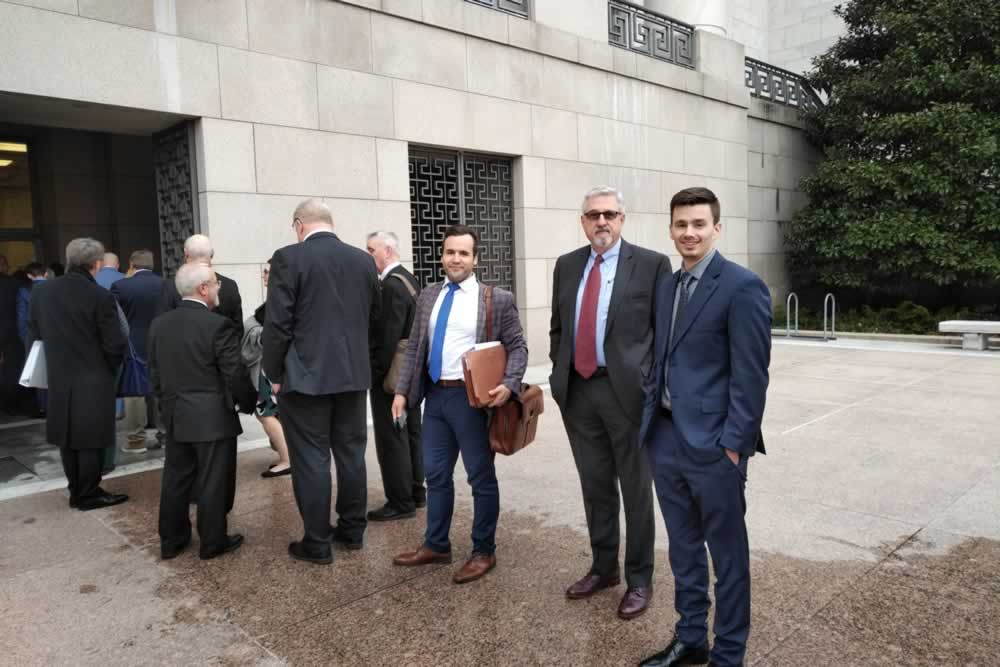TAX TIDBIT
Advancing the Biden Tax Policy Agenda. With Jon Ossoff and Raphael Warnock winning both Senate runoff elections in Georgia last week, the Senate will be evenly divided 50-50 this Congress. A newly sworn-in Vice President Kamala Harris will give Democrats the tie-breaking advantage and provide Sen. Chuck Schumer (D-NY) with the critical right of first recognition on the floor. This will give Democrats a majority and the accompanying powers that come along with it, including more power to advance their tax and economic agenda.
The first item on the new administration’s agenda will be another COVID-19 relief package. As the pandemic continues to surge, bringing with it new waves of unemployment, President-elect Joe Biden has said his first legislative goal will be passing additional economic assistance for individuals and businesses particularly affected by the virus. The package is expected to look similar to the HEROES Act House Democrats passed in May 2020—a proposal Biden explicitly endorsed on the campaign trail.
According to remarks Biden made on Jan. 8, the price tag of the package will be high. Biden said it will include funding for state and local governments, expand Unemployment Insurance, extend rent forbearance, provide additional Economic Impact Payments for individuals and families and increase the minimum wage to $15 an hour. The package is also expected to include top Democratic tax priorities, such as expanding the Earned Income Tax Credit, the Child Tax Credit and the Child and Dependent Care Tax Credit. The incoming administration will unveil more details on the proposal this Thursday, Jan. 14.
Once additional COVID-19 relief is enacted, the Biden administration plans to pursue infrastructure legislation—a bipartisan issue on which agreement has remained elusive. In his campaign proposals, Biden envisioned a comprehensive infrastructure bill that will update traditional infrastructure like roads, bridges and electrical grids. His plan also calls for other Democratic priorities, such as constructing 500,000 electric vehicle charging stations, achieving 1.5 million sustainable homes and housing units and achieving a carbon pollution-free power sector by 2035.
Several proposals from the Biden Build Back Better platform on which Biden campaigned could be included in COVID-19 or broader infrastructure legislation. More details on Biden’s tax platform from the campaign are explored below.
Corporate
- Increase the corporate tax rate from 21%, which was lowered under the Tax Cuts and Jobs Act (TCJA, P.L.115-97), to 28%.
- Impose a 10% offshoring penalty surtax on services and sales to U.S. customers from a U.S. company’s foreign subsidiary.
- Support “Made in America” tax policies and establish a 10% tax credit for companies making investments creating jobs for American workers and accelerating economic recovery.
Small Business
- Reserve 50% of Paycheck Protection Program (PPP) funds for small businesses with fewer than 50 employees.
- Make racial and gender equality a central component of policy by prioritizing minority businesses.
Individual
- Restore the top individual rate from 37% to its pre-TCJA level of 39.6%.
- Impose the 12.4% Social Security payroll tax on wage and self-employment income above $400,000.
- Tax long-term capital gains at ordinary rates for income above $1 million, removing the step-up in basis on capital gains and eliminating tax-free like-kind exchanges for investors earning above $400,000.
- Provide financial assistance to first-time buyers through a refundable and advanceable tax credit of up to $15,000.
- Provide a refundable tax credit of up to $8,000 to help low-income families to pay for child care.

LEGISLATIVE LOWDOWN
Democratic Tax Policy Outlook on Capitol Hill. Although Democrats will control all levers of government during the 117th Congress, implementing the party’s tax agenda will be far from easy. Both chambers are closely divided, with Democrats having only a 222-211 advantage in the House and an evenly split Senate.
The narrow margins will require Democratic members to tow the party line in order to pass legislation without bipartisan support. While only a simple majority is required in the House, to pass most legislation in the Senate, Democrats will have to secure 60 votes. Otherwise, they will have to use the budget reconciliation process, which allows legislation to pass with only 51 votes, to enact legislation that lacks bipartisan support. Like other legislative tools in the Senate, however, there are restrictions on the budget reconciliation process designed to protect the rights of the minority. These restrictions mean that Democrats will be unable to implement the entirety of their agenda through this procedural process, and will instead be required to secure Republican votes in order to pass some of their agenda.
Given these constraints, the odds Congress enacts substantially more legislation this session compared to previous ones are slim. However, there is room for agreement. Among the likeliest areas of agreement between Republicans and Democrats is retirement legislation, “Buy American” tax incentives and infrastructure spending.
Narrow Majorities
The House will again be led by House Speaker Nancy Pelosi (D-CA) and House Minority Leader Kevin McCarthy (R-CA). However, with a slimmer majority, Pelosi must be careful not to lose many votes on issues contentious within her caucus.
Sens. Chuck Schumer (D-NY) and Mitch McConnell (R-KY), who will again lead their respective parties, are currently discussing the power dynamic in the upper chamber, negotiating over committee ratios and procedural matters. Since the Senate will be evenly divided, the two are reportedly considering a power-sharing dynamic agreement similar to the one reached in 2000.
Under that agreement, reached by then-Senate Majority Leader Trent Lott (R-MS) and then-Senate Minority Leader Tom Daschle (D-SD), the two parties had roughly equal influence over the legislative process. For example, committees contained an equal number of members from either party, and party leaders had to secure “an equal balance of the interest of the two parties” when scheduling legislative action. Schumer and McConnell are exploring this option, but it remains unclear whether or not this will be the path ultimately chosen.
Tax Committees
Below is an overview of the tax writing committees, the House Ways and Means Committee and the Senate Finance Committee, this session with an eye towards potential legislative priorities.
House Ways and Means – Chair: Richard Neal (D-MA). Ranking Member: Kevin Brady (R-TX)
Senate Finance – Chair: Ron Wyden (D-OR). Ranking Member: Mike Crapo (R-ID)
House Ways and Means Committee
Chair Richard Neal (D-MA). Neal has already outlined the tax priorities for House Ways and Means Democrats this session in a framework focused on health and economic equity. The framework proposes a number of policies, such as extending the Work Opportunity Tax Credit, making the Child Tax Credit fully refundable, increasing the Earned Income Tax Credit for childless workers, lowering the Earned Income Tax Credit minimum age and extending it to the U.S. territories. The framework also calls on Congress to provide financial support to state and local governments, affordable health care and retirement security.
These issues will likely be in addition to others Neal has supported in the past. In recent years, Neal has sought to reach bipartisan agreement on infrastructure spending and addressing health care costs. He is likely to again pursue legislation related to these issues.
Ranking Member Kevin Brady (R-TX). In December 2020, Brady said he would use his position as the committee’s top Republican to protect Social Security and improve access to telehealth and ensure Republican priorities are included in trade deals. He also vowed to help bolster retirement security, prevent tax hikes on families and small businesses and secure the gains made under the TCJA.
Brady has also vocally supported increasing the research and development tax credit to incentivize innovation in the U.S. More broadly, he has shown an interest in using the tax code to increase supply chain security. It is an issue that could see movement, as it shares bipartisan appeal and aligns with President-elect Biden’s “Buy American” agenda.
Senate Finance Committee
Chair Ron Wyden (D-OR). Wyden has been outspoken critic of the TCJA since its passage in December 2017. As such, he is expected to lead the Democratic charge to overturn the landmark tax bill, either in-whole or in-part, now that he will lead the Senate Finance Committee. Particular TCJA provisions in his crosshairs are the $10,000 state and local tax deduction cap, the corporate tax rate and the top marginal tax rate for individuals.
Wyden is also interested in pursuing a fair tax regime. As outlined in his 2019 white paper, “Treat Wealth Like Wages,” Wyden proposed a mark-to-market structure that would impose tax liabilities on unrealized gains and equate tax rates for capital and ordinary income above certain thresholds. He has since been collecting industry feedback and drafting legislation, which he is expected to introduce this year.
Ranking Member Mike Crapo (R-ID). Relative to his predecessor, Sen. Chuck Grassley (R-IA), Crapo’s priorities are not as clear. However, at the outset of the year, Crapo may have provided a hint in his weekly column. On Jan. 4, Crapo wrote about the importance of increasing retirement saving opportunities for Americans. Bipartisan interest in retirement security has been bubbling under the surface since passage of the Setting Every Community Up for Retirement Enhancement (SECURE) Act, and it is an issue that could see significant movement this year.
Crapo could also find common ground with Wyden on housing issues, a top priority for Wyden. As Chair of the Senate Banking Committee, Crapo sought to increase competition among mortgage guarantors and promote access to affordable housing. Given the mutual interest, the two could coordinate on bipartisan legislation.

1111 CONSTITUTION AVENUE
Taxpayer First Act Report. On Jan. 11, the Internal Revenue Service (IRS) sent the Taxpayer First Act Report to Congress, detailing a comprehensive list of recommendations designed to improve taxpayer experience, employee training and the agency’s organization. The report was required under the Taxpayer First Act (TFA), which was enacted in July 2019, and provides the following topline funding:
- IRS Modernization Plan: $1.9 billion for cybersecurity and operations;
- Strategy Development and Implementation: $1.6 billion for Taxpayer Experience, Training and Organizational Redesign plans required under TFA; and
- Other Mandated Provisions: $550 million for other provisions required under TFA.
Taken together, the IRS estimated the proposed changes would amount to $4.1 billion between FYs 2021 through 2025. The agency said that fully implementing TFA’s requirements will cost $444 million more than previously thought, an increase of $111 million per FY. According to the IRS, the recommendations requiring the most significant funding increases include:
- The IRS Independent Office of Appeals;
- Internet Platform for 1099 Filings;
- Identity Protection PINs; and
- Mandatory E-filing by Exempt Organizations.
The IRS said in the report it will begin implementing the recommendations as soon as this year.
Stimulus Checks on Their Way. Last week, the IRS released an update on the newest round of Economic Impact Payments, stating it was working closely with partners in the tax and financial industry to do “everything possible” to get Americans their money. The announcement should come as a relief to many taxpayers who have yet to see their second stimulus payment. The agency cited a glitch for the widespread delays, blaming the millions of misdirected payments on temporary bank accounts used by commercial tax services like TurboTax, Jackson Hewitt and H&R Block. As a result, the IRS directed certain payments to temporary accounts, inaccessible to those awaiting deposits to their personal accounts. A similar glitch impacted delivery of the initial rounds of $1,200 pandemic relief payments last spring.
Intuit, the company responsible for TurboTax, indicated that the misrouted payments would start hitting taxpayers’ accounts on Jan. 8, blaming “IRS error” for delays in processing. H&R Block also stated it had resolved the issue for its customers last week, sending payments to its users either through direct deposit or prepaid debit cards. Jackson Hewitt similarly assured clients that it was working with the Treasury to distribute the payments as soon as possible. While the IRS “continues to work closely” with industry partners to efficiently deliver payments, the latest Covid-19 relief package directs the Treasury to disburse the money by Jan. 15. Taxpayers that do not receive payment by this Friday’s deadline will need to claim the Recovery Rebate Credit on their 2020 tax returns. The IRS has yet announce when taxpayers may begin filing for the 2020 tax season.
The Price Is Right. In Revenue Procedure 2021-1, the IRS announced an increase in fees for private letter rulings. The Office of Chief Counsel (OCC) released a statement regarding its biennial review of user fees, citing a combination of the costing methodology, decreased amount of issued rulings, and increased complexity of rulings requested for the 26.7% spike. OCC will be receiving comments on how the fee structure can better account for specific ruling requests until March 1. Fees start at $275 beginning Feb. 4. Discounted fees will remain available for most tax payers with an annual adjusted gross income under $1 million.
Final 163(j) Regulations. The IRS issued final regulations providing additional guidance for the limitation on business interest expenses deduction under Code Sec. 163(j), reflecting changes made by the Tax Cuts and Jobs Act, and the Coronavirus Aid, Relief, and Economic Security Act. Specifically, the regulations address application of the limitation in contexts involving passthrough entities, regulated investment companies (RICs) and controlled foreign corporations (CFCs). The regulations also provide guidance regarding definitions of real property development, real property redevelopment and syndicates.
501(c)(4) Application Goes Virtual. The IRS has announced that Form 1024-A (Application for Recognition of Exemption Under Section 501(c)(4)) may now be filed electronically. Edward Killen, acting commissioner of the IRS Tax Exempt and Government Entities division, expressed hope that electronic filing will reduce user error and shorten processing times for applicants. The IRS also announced a 90-day transition period during which the agency will continue to accept paper versions of Form 1024-A. Starting April 5, the form must be submitted electronically. The required user fee will remain at $600.
GLOBAL GETDOWN
Birkin Bags Saved by the Bell: USTR Holds Off on Retaliatory Tariffs Against France Amid Ongoing Investigations into Digital Services Taxes. U.S. Trade Representative (USTR) Robert Lightizer announced last week the U.S. will not be imposing tariffs on French luxury goods. USTR formally issued a Federal Register notice suspending the import tax on France, a retaliatory response to the country’s new digital services tax (DST) targeting American big-tech companies like Google, Amazon, Apple and Facebook. The 25% tariff on $1.3 billion in French goods would have taken effect on Jan. 6.
The suspension comes days after the agency concluded that similar DSTs adopted by India, Italy and Turkey all unfairly discriminate against major U.S. internet companies. Lightizer indicated that the U.S. will coordinate its response with its efforts in similar disputes within other countries. He added that while the U.S. investigations into predatory DSTs had significantly progressed, possible trade actions have yet to be determined. While USTR has yet to announce specific action in connection with these findings, Lightizier stated “[a] suspension of the tariff action in the France DST investigation will promote a coordinated response in all of the ongoing DST investigations.” The agency will continue to look into practices of the European Union, U.K., Brazil and other jurisdictions.
By suspending the French tariffs, USTR effectively passes the issue of DSTs to the incoming Biden administration, as negotiations among the Organization for Economic Cooperation and Development (OECD) to create a global framework for digital taxation have stalled.
Family Enterprise USA advocates for American Family business. We help family businesses communicate their challenges and contributions to American economic freedom to Legislators. We represent all American family businesses; not just specific industries and provide research to enhance the opportunity for success. We help family businesses continue to establish their unique business legacy. Family Enterprise USA is a 501(c)(3) non-profit organization.. Family foundations can donate.

